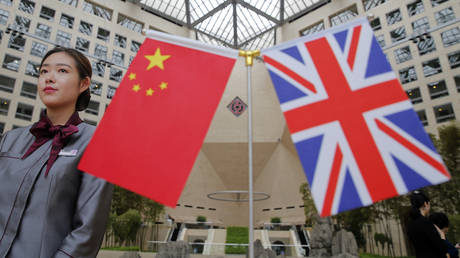
London insisted that British National Overseas (BNO) passports are “legitimate” after China said it may end its recognition of them amid a row over new visa rules offering 3 million Hong Kongers a path to British citizenship.
Under the conditions outlined by London this week, BNO passport holders and their immediate dependents are being offered the ability to live and work in Britain for five years. After five years, the passport holders will be able to apply for “settled” status and 12 months later can apply for full citizenship.
The move was blasted as “political manipulation” by Chinese Foreign Ministry spokesperson Wang Wenbin on Thursday, while the Chinese Embassy in London said it “violates international law.” A spokesperson for British Prime Minister Boris Johnson told Reuters that the passports are “legitimate international travel documents” and that is “how you would expect them to be treated.”
Any person born before 1997 – the year Hong Kong was returned to China – has been eligible to apply for a BNO passport. As it stands, the passport holders are already allowed a six-month visa-free stay in the UK.
With the new rules, almost three million Hong Kong residents will be eligible to become British citizens, meaning the changes are bound to create a large and stable migration route to the UK.
“BN(O) citizens will now have a choice to come and live, work and study in the UK, building a new life for them and their family,” UK Home Secretary Priti Patel said on Monday.
London’s decision came in response to the controversial new security law imposed by Beijing on Hong Kong, which sparked international backlash. Patel said the visa changes were Britain’s way of keeping its “promise to uphold freedoms” in the former British colony.
The new visa route will become available in January 2021.
After Hong Kong’ sovereignty was transferred back to China on July 1, 1997 by the UK, the BN(O) passport became a ubiquitous travel document among locals – although before Wednesday, it could offer its holder only a temporary stay in Britain.
Beijing has insisted that the controversial security law is vital to its “national sovereignty, security and development interests,” and urged Britain to “immediately correct its mistakes and stop interfering in Hong Kong affairs, which are China’s internal affairs.”
Like this story? Share it with a friend!




